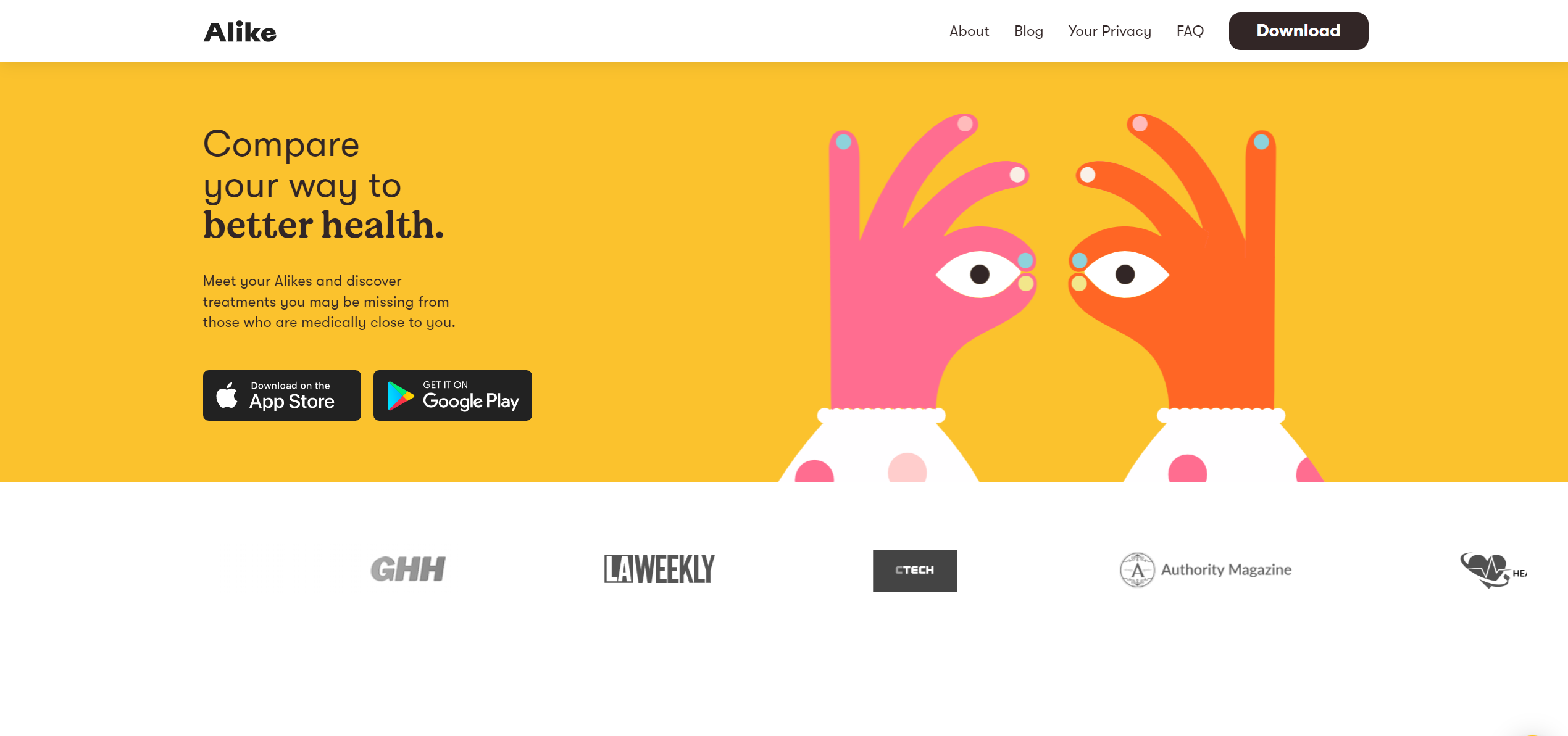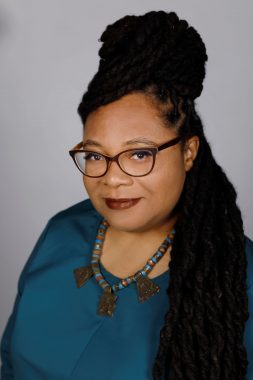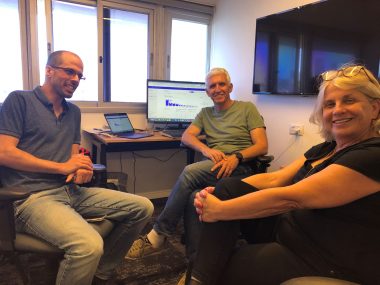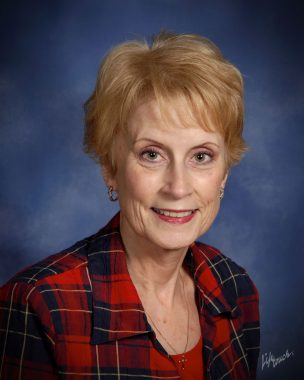Alike App, ‘Tinder for Healthcare,’ Connects and Empowers Patients
App, now freely available, unites users with similar diseases, symptoms, issues
Written by |

Jasmine Iona Brown was diagnosed with multiple sclerosis (MS) in 2003 when she was pregnant with her son.
Since then, the 50-year-old Tacoma, Washington, teacher has faced a number of challenges related to her MS diagnosis — fatigue, nerve pain, and cognitive issues. Her family, Brown said, was neither supportive nor convinced about how the disease was affecting her.

Jasmine Iona Brown says that Alike has helped her feel less alone with MS. (Photo courtesy of Jasmine Iona Brown)
That’s when she sought out online MS support groups, places she could connect with people who understood her situation and who better knew what she was facing. Recently, Brown discovered an app called Alike that matches people with others, all kept anonymous, who have the same condition and are all experiencing similar disease symptoms.
While Brown uses Alike to learn more about MS and living well with it, the app is open to anyone wanting to engage in a tailored way with others who have the same health condition and who are willing to share their medical history.
Brown said she is comfortable talking about her illness on Alike in a way she isn’t on social media, where her profile picture is attached to her words. She also doesn’t have to worry about how she looks while using the app.
“I can log on at 2 in the morning while I’m laying in bed, having a rough day, and just scroll through and see that I am not alone,” Brown said.
Alike, available as the Alike Health app on the Apple Store and Google Play, uses an algorithm and artificial intelligence to determine similarities between two patients using their “Alikeness” scores. Users can then engage with others whose scores closely match their own by asking questions, sharing their experiences, or finding support from people with similar health histories. The app has been described as a kind of Tinder for healthcare.

Alike was founded by Ohad Zadok (left), Amnon Bar-Lev (center), and Varda Shalev (right). (Photo courtesy of Alike)
Alike raised $5 million in seed funding in 2020, in a round led by the Pitango HealthTech fund, and isn’t currently charging for the app or monetizing it. In the future, the company intends to provide a marketplace offering solutions for patients at a price, according to Varda Shalev, MD, a primary care physician and medical researcher in Israel, and an Alike co-founder. The base social platform will remain free for now.
While patients seek guidance from their primary care physician, they ultimately make the final decisions about their health, an often daunting responsibility. That’s why Shalev, and her two co-founders, also in Israel — Ohad Zadok, a data scientist, and Amnon Bar-Lev, an expert in cybersecurity — created the platform. It aims to give the patient more information to work with as they make difficult health decisions and try to stay as healthy as possible.
“My best partner really is the patient,” Shalev said, citing her experience as a doctor. “Today, there’s so much data and burden on the physician, that if you are not active, you can miss things. I learned a lot from my patients and I think patients can learn a lot from other patients that are like them.”
Share and share alike, using Alike
In the U.S., the ability of patients to manage and share their data on platforms like Alike is possible thanks to the 21st Century Cures Act, enacted into law in 2016. Its final rule relates to electronic health information and requires providers — as of November 2020 — to “support patient’s access to their electronic health information (EHI) in a form convenient for patients.”
With greater access comes the need to responsibly protect patient data, however. That’s where Bar-Lev and Zadok come in. Bar-Lev is a former president of Check Point Software Technologies and Zadok has had experience at Intel. Security is among Alike’s top priorities.
Any personal identifiers are removed from a participant’s profile once the app is set up. The string of characters that make up an on-file email address is encrypted, so a user’s actual email address cannot be read. Users are also verified by their healthcare provider.
Most data on Alike are hosted by Amazon Web Services, and the encryption for it is managed by the large cloud-based data company. This means that if your profile is deleted on the app, part of it may still live on Amazon Web Services servers.
Alike also “fuzzes” data. It converts precise years and months into unidentifiable ones just in case a hacker tries to discover a person’s identity when connecting with publicly available information. Likewise, no data are stored on any device and detailed physician notes and addresses are never captured.
The company also hires external cybersecurity companies to routinely test the strength of Alike’s privacy and security measures.
Setting up an Alike profile, using the app
The user interface of Alike is an important feature, and setting up the app is intuitive. When the app is downloaded, basic personal information such as age, sex and gender, and email address can be entered. A user’s name and email remain hidden on the outward-facing profile, which shows an age range of two years.
Users can then enter medical information, either manually or by syncing data with a medical group that uses MyChart. Information includes diagnoses, a medication list, and whether the person smokes or exercises. All of it can be accessed on the public profile, but any personal information is hidden. Alike is also HIPPA-compliant, meaning they act in accordance with U.S. laws safeguarding personal health information.
Once an account is set up, artificial intelligence will analyze the profile and create a social feed with people who have similar diagnoses, symptoms, or goals, such as losing weight. Users are able to create a post, whether it’s introducing themselves, asking a question, or looking for support. There’s also an opportunity to connect via a direct message to people with a similar Alike score.
Alike offers a number of prompts covering various topics, including a family’s reaction to a person’s diagnosis. Brown saw the difficulty others had engaging with their family, and their posts helped her to feel like she isn’t alone. She can also see how other people work to overcome difficult MS symptoms, such as chronic fatigue, she said.

Gwendolyn Ratliff has offered assistance to others with blood clotting issues on Alike. (Courtesy of Gwendolyn Ratliff)
Shalev believes that Alike can be helpful for people with rare diseases, who likely don’t know anyone else with their condition or comorbidities (co-existing conditions). Each person’s disease is different, and how they manage it relates to what kind of job they have, their habits, and their personal preferences. Finding someone who shares those characteristics can be hard using a basic online search. Shalev hopes Alike can be a place where people can find out more about their disease and how to manage it, based on others’ experiences.
Offering guidance, avoiding vitriol
Gwendolyn Ratliff from Mount Vernon, Ohio, who has sarcoidosis and Crohn’s disease, said she has taken on a role of guiding others through their difficulties on Alike, rather than looking for assistance.
In one instance, Ratliff, 70, was chatting with a woman who had blood clotting issues thought to be due to her Crohn’s, a type of inflammatory bowel disease. That woman had been to the emergency room a number of times with a blood clot, and she thought she had another one but didn’t want to go back.
“I told her she better go back. It’s better to be safe than sorry, because of the blood clot. You don’t play around with that,” Ratliff said.
Alike enforces a number of community guidelines to keep a conversation from devolving into hostile arguments, such as those that sometimes appear on Twitter and Facebook. It asks its users to be kind and courteous, refrain from hate speech, bullying, or harassment, stay relevant and reliable, not advocate for suicide or self-injury, keep private information discrete, not promote or spam content, and report content wisely.
From Brown’s firsthand experiences, those guidelines are enforced. She hasn’t seen the same anger that she found on Facebook, she said, especially when dealing with sensitive topics like abortion. One prompt on Alike asked people to share their experiences, and Brown felt comfortable posting about her own.
“There’s a chance for discussion a little bit, but I found that it’s not as full of as much vitriol as I’ve seen on other social media platforms,” Brown said. “I’m so tired. You know, I don’t have the energy to argue with folks on Facebook and Instagram for hours.”
Shalev said as more and more patients begin to feel empowered about their own healthcare, an app such as Alike can be a tool that helps them to understand their condition via “The Wisdom of the Crowd” — which notes that the accurate answer to a solution usually lies in the average answer of a large group of people — and to be more proactive in working with their doctors.
“I think with the time all of us understand that we need the patient collaboration, we need the patient to be a lot more active with us,” Shalev said. “Alike is in the right time in the right spot.”

